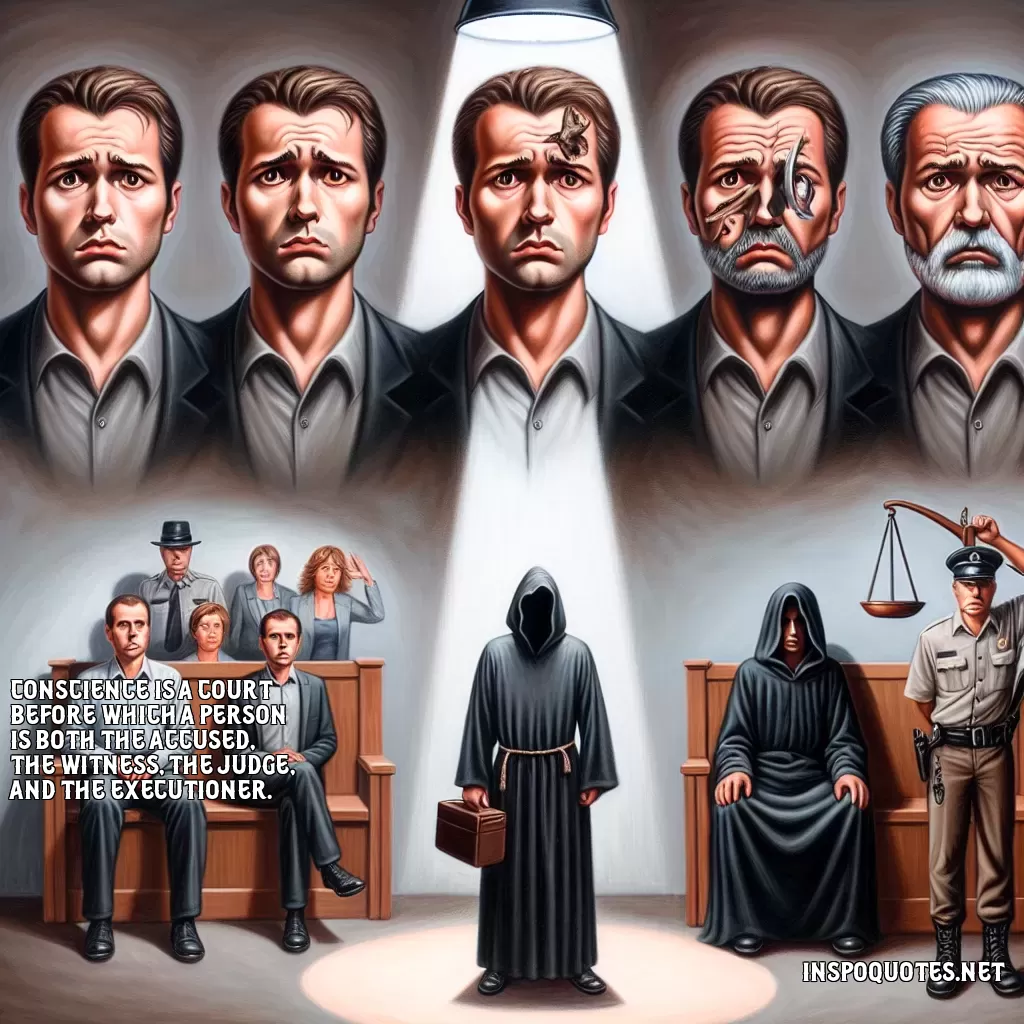
Conscience is a court before which a person is both the accused, the witness, the judge, and the executioner.

Conscience is a court before which a person is both the accused, the witness, the judge, and the executioner.
This quote illustrates the multifaceted nature of conscience in moral decision-making. It suggests that when an individual faces ethical dilemmas or examines their actions, they assume multiple roles within their own internal moral system. As the "accused," they are confronted with their own wrongdoings or questionable choices. As the "witness," they observe and reflect on those actions impartially. As the "judge," they assess the morality of their behavior and determine its righteousness or wrongfulness. Finally, as the "executioner," they enforce the consequences of their moral judgement, which may involve feelings of guilt, regret, or the need for atonement. Together, these roles emphasize the complexity of self-reflection and accountability in human experience, highlighting that our conscience shapes our understanding of right and wrong, guiding our actions and responses.
Quote By: Victor Hugo